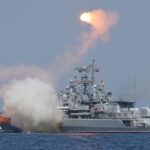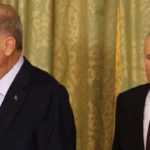The day before, the Minister of Foreign Affairs of the Islamic Republic of Iran (IRI), Hossein Amir Abdollahian, issued a statement in which he literally warned the State of Israel against further “hunting” for the leaders of the Palestinian extremist organization Hamas. According to him, if Tel Aviv “does not listen to the voice of reason,” the Israeli state “will be doomed to destruction.” Iranian Defense Minister Mohammad Reza Garai Ashtiani spoke in a similar context. Against this background, hundreds of analysts around the world have already suggested that Tehran is preparing for war against the Israelis. Is it so?
A remark should be made immediately. The statement by the Iranian political elite came immediately after the murder of one of the Hamas leaders, Saleh al-Arouri, in a suburb of the Lebanese capital Beirut. There is no information about the executor of the “political order” (that’s what observers call this action). However, it is no secret to anyone that the Beirut incident benefited, first of all, Israel. Earlier in Tel Aviv there were already calls to deal with all representatives of this Islamist movement. Even more – immediately following this event, senior adviser to the Prime Minister of Israel Mark Regev actually approved the liquidation of al-Aruri. “Whoever did this has carried out a surgical strike on the terrorists,” he said in an interview with the influential American television channel MSNBC. And he made it clear quite unequivocally that this murder of the indicated head of the extremist cell would most likely be followed by others.
Most likely they will follow. It is curious that the death of al-Arouri caused a wave of indignation not in Lebanon itself, but in Iran. However, this can be easily explained. The fact is that Tehran currently views the Lebanese state as a zone of its direct influence. Not only the pro-Iranian Shiite group Hezbollah operates in Lebanon, but also cultural and economic representations of Iran are active. According to some reports, over the past five years the Islamic Republic has invested more than $15 billion in the economy of this Arab country. There is information that the Iranian leadership is authorizing the sale of its weapons and ammunition to Beirut.
In light of new events, the Iranian leadership spoke out for the need to “punish Israel.” “We do not need any evidence of Tel Aviv’s involvement in political assassinations. We simply don’t want to wait for new crimes to happen here,” Ashtiani concluded. And he added that the Iranian army and the elite troops of the Iranian Revolutionary Guard Corps (IRGC) have begun to increase their combat capability.
“It is quite obvious that these loud statements are aimed at the listener in Israel,” said American political commentator William Connolly in a special commentary for EURO-ATLANTIC UKRAINE. “This is how Tehran today makes it clear that it is ready to enter into a confrontation with Israel and is ready for any scenario.” But here’s the thing: they say almost the same thing in Israel. According to Israeli army spokesman Daniel Hagari, the Israeli army is “ready to repel an attack on its country, no matter what the scenario.”
And the death of al-Arouri became just another irritant in the already tense relations between Tehran and Tel Aviv.


